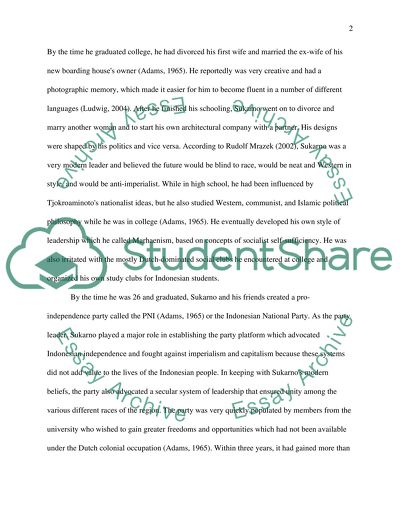Cite this document
(“Sukarno, President of Indonesia Essay Example | Topics and Well Written Essays - 1750 words”, n.d.)
Retrieved from https://studentshare.org/english/1453537-researched-argument-essay-moral-leadership
Retrieved from https://studentshare.org/english/1453537-researched-argument-essay-moral-leadership
(Sukarno, President of Indonesia Essay Example | Topics and Well Written Essays - 1750 Words)
https://studentshare.org/english/1453537-researched-argument-essay-moral-leadership.
https://studentshare.org/english/1453537-researched-argument-essay-moral-leadership.
“Sukarno, President of Indonesia Essay Example | Topics and Well Written Essays - 1750 Words”, n.d. https://studentshare.org/english/1453537-researched-argument-essay-moral-leadership.


